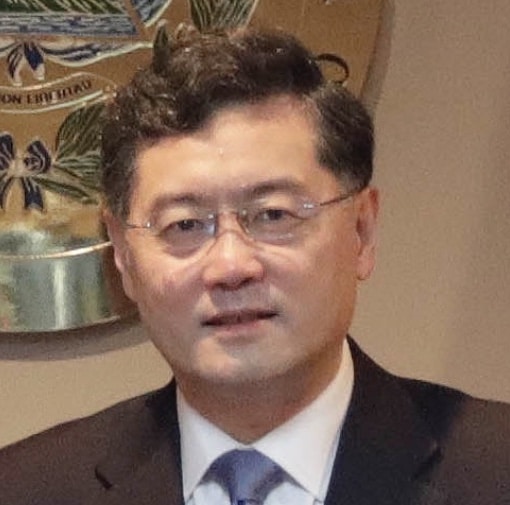China has replaced its outspoken Foreign Minister, Qin Gang, with his predecessor, Wang Yi.
The move comes amid a mysterious absence by Qin, who has not been seen in a month, and has fueled rumors regarding China’s Communist Party elite.
Chinese state television gave no reason for Qin’s removal, nor for his disappearance from the public.
During a daily briefing Tuesday, the Foreign Ministry also made no comment regarding Qin’s status.
The move to replace him comes amid Western backlash against China’s progressively aggressive foreign policy, though on Sunday, Secretary of State Antony Blinken said the U.S. is efforting to strengthen “lines of communication” with China and put some “stability into the relationship,” which has been increasingly strained over the past several months.
Qin last appeared on camera June 25, during a meeting with Sri Lanka’s Foreign Minister in Beijing.
In March, Qin made a rare phone call to Ukraine’s Foreign Minister, Dmytro Kuleba, during which he told Kuleba that Beijing was concerned about Ukraine’s war with Russia spinning out of control, and urged talks to find a political solution.
Chinese President Xi Jinping—who had traveled to Russia and met with Russian President Vladimir Putin days after the Foreign Ministers’ phone call—spoke by phone with Ukrainian President Volodymyr Zelensky on April 26.
Zelensky described their conversation as “long and meaningful”and said he believed it would help “give a powerful impetus to the development of our bilateral relations.”
Qin’s replacement, Wang Yi, previously served as China’s top diplomat in his capacity as head of the party’s Office of Foreign Affairs. It appeared likely he would retain that position, at least in the short term, amid a lack of other strong contenders.
Earlier in his career, Qin had served as Foreign Ministry spokesperson, during which he gained a reputation for criticizing the West and rejecting all accusations against China, in what became known as “wolf warrior” diplomacy.


